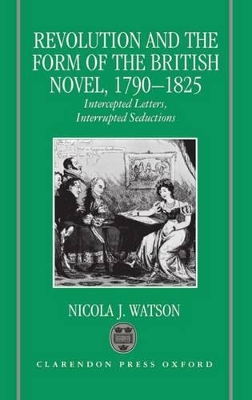Whatever happened to the epistolary novel? Why was it that by 1825 the principal narrative form of eighteenth-century fiction has been replaced by the third-person and often historicised models which have predominated ever since?
Nicola Watson's original and wide-ranging study charts the suppression of epistolary fiction, exploring the attempted radicalization of the genre by Wollstonecraft and other feminists in the 1790s, its rejection and parody by Jane Austen and Maria Edgeworth, the increasingly discredited role played by letters in the historical novels of Jane Porter and Walter Scott, and their troubling, ghostly presence in the Gothic narratives of James Hogg and Charles Maturin. The shift in narrative method
is seen as a response to anxieties about the French Revolution, with the epistolary, feminized, and sentimental plot replaced by a more authoritarian third-person mode as part of a wider redrawing of the relation between the individual and the social consensus.
This is a brilliant and innovative reading of the place of the novel in the reformulation of British national identity in the Napoleonic period, throwing new light on writers as diverse as Hazlitt, Charlotte Smith, Walter Scott, Helen Maria Williams, and Byron.
- ISBN10 0198112971
- ISBN13 9780198112976
- Publish Date 3 February 1994
- Publish Status Active
- Publish Country GB
- Publisher Oxford University Press
- Imprint Clarendon Press
- Format Hardcover
- Pages 230
- Language English
